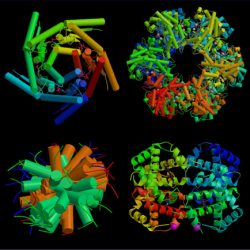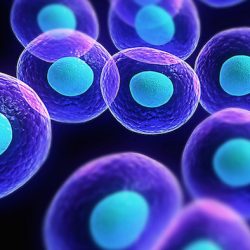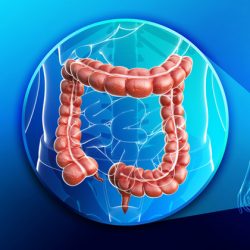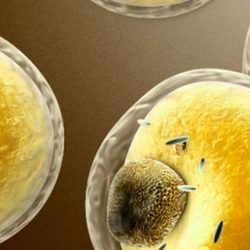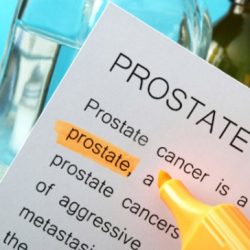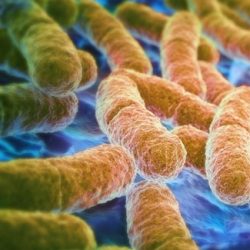Testing cancers for 'addiction' to a gene that boosts cell growth can pick out patients who may respond to a targeted drug under development, a major new study reports. By measuring the number of copies of just one gene from cancer DNA circulating in the bloodstream, scientists were able to identify the patients with stomach cancer who were most likely to respond to … [Read more...]
Cancer News

Chemotherapy and exercise: The right dose of workout helps side effects
Researchers at the University of Rochester Wilmot Cancer Institute discovered something simple and inexpensive to reduce neuropathy in hands and feet due to chemotherapy--exercise. The study, involving more than 300 cancer patients, is to be presented this weekend and honored as a "Best of ASCO" among 5,800 abstracts at the world's largest gathering of oncologists, the … [Read more...]
A New Study reveals insights into protein linked to cancer & Alzheimer’s disease
Drugs to treat cancer and Alzheimer's disease usually target the active sites of specific protein molecules sustaining the disease. Traditional drug design views proteins as rigid 3-D objects with active sites consisting of surface-accessible "pockets" with a specific, well-defined structure. Traditional drug design involves finding small molecules with shapes that fit … [Read more...]
Higher BMI, waist circumference are associated with increased risk of aggressive prostate cancer says a Study
A study of almost 150,000 men from 8 European countries, presented at this year's European Obesity Summit (Gothenburg, 1-4 June) shows that higher body mass index (BMI) and waist circumference are associated with an increased risk of aggressive prostate cancer. This analysis of the European Prospective Investigation into Cancer and Nutrition (EPIC) is by Dr Aurora … [Read more...]
University of Würzburg Scientists identify new drivers of a rare cancer type
Cancer researchers in Würzburg, in cooperation with the international Cancer Genome Atlas Research Network, have identified new genetic drivers of adrenal cancer. Würzburg was the center of coordination of the European scientists. Research teams from 39 institutions in Europe, Northern America, Southern America and Australia have collected and examined 91 adrenal cancer … [Read more...]
Experts Question Study Linking Cellphones, Cancer
Experts at the U.S. National Institutes of Health are questioning the validity of a widely reported study in rats that linked cellphone radiation to tumors. The study, released Friday by the federal government's National Toxicology Program (NTP), found "low incidences" of two types of tumors in male rats exposed to the type of radio frequencies emitted by cellphones, the … [Read more...]
A Boston University Study Reveals Breast and Ovarian Cancer may have similar origins
While breast cancer is the most common cause of cancer death in women worldwide, ovarian cancer also is a significant source of mortality as the fifth leading cause of cancer death among women. These facts reflect the continued need for further understanding and innovation in cancer treatment. A new study published in the International Journal of Molecular Sciences, … [Read more...]
A Study finds Elevated Cancer Risk among Women with New-Onset Atrial Fibrillation
Among nearly 35,000 initially healthy women who were followed-up for about 20 years, those with new-onset atrial fibrillation had an increased risk of cancer, according to a study published online by JAMA Cardiology. Atrial fibrillation (AF), the most common cardiac arrhythmia, is associated with an increased risk of major cardiovascular complications. A substantial … [Read more...]
University College London Research points to possible New Prevention Strategies for Ovarian Cancer
Research revealing early changes at epigenetic level points to possible new prevention strategies for ovarian cancer The discovery of early changes in the cells of the Fallopian tubes of women carrying the BRCA genetic mutation could open the way for new preventative strategies for ovarian cancer, reducing the need for invasive surgery, according to research published in … [Read more...]
Healthy lifestyle can prevent cancer: Washington University Study
A large proportion of cancer cases and deaths among U.S. individuals who are white might be prevented if people quit smoking, avoided heavy drinking, maintained a BMI between 18.5 and 27.5, and got moderate weekly exercise for at least 150 minutes or vigorous exercise for at least 75 minutes, according to a new study published online by JAMA Oncology. Cancer is a leading … [Read more...]
Childhood cancer survivors does not follow guidelines on healthy eating: A Study
Having survived cancer as a child does not necessarily have a ripple effect that makes people lead a healthier lifestyle once they grow up. In fact, in a report derived from a National Cancer Institute-funded study of childhood cancer survivors known as the Chicago Healthy Living Study, investigators found that childhood cancer survivors in no way adhere more closely to … [Read more...]
Blocking apoptotic response could preserve fertility in women receiving cancer treatments: University of Texas Study
Female cancer patients of reproductive age could preserve their fertility during radiation and chemotherapy through treatments that target the DNA damage response in oocytes (the cells that develop into eggs), an approach that works in animal models. Jackson Laboratory Assistant Professor Ewelina Bolcun-Filas, Ph.D., and Terri L. Woodward, M.D., assistant professor at the … [Read more...]
Cancer-fighting properties of horseradish: University of Illinois Study
Horseradish contains cancer-fighting compounds known as glucosinolates. Glucosinolate type and quantity vary depending on size and quality of the horseradish root. For the first time, the activation of cancer-fighting enzymes by glucosinolate products in horseradish has been documented. The humble horseradish may not be much to look at, but a recent University of Illinois … [Read more...]
Selenium, vitamin E supplements can increase risk of prostate cancer in men: A Study
A multi-center study led by Fred Hutchinson Cancer Research Center has found that high-dose supplementation with both the trace element selenium and vitamin E increase the risk of high-grade prostate cancer. But importantly, this risk depends upon a man's selenium status before taking the supplements. These findings, published in Journal of the National Cancer Institute, are … [Read more...]
Cancer risk perception could lead to adverse health outcomes in women: University of Missouri Study
According to recent studies, the U.S. has a disadvantage in women's life expectancy compared to peer countries despite high rates of health screenings such as mammography and popular national awareness campaigns. Recently, researchers at the University of Missouri examined the perceptions of risk among females and found that minority and less educated women believe that breast … [Read more...]
Gene therapy against brain cancer
A team from the International School for Advanced Studies (SISSA) in Trieste has obtained very promising results by applying gene therapy to glioblastoma. Tests in vitro and in vivo on mice provided very clear-cut results, and modelling demonstrates that the treatment targets at least six different points of tumour metabolism. Gene therapy, a technique that selectively attacks … [Read more...]
Firefighters and the Cancer Connection
Firefighters face many risks during their jobs, but, ironically, the most dangerous part of running into a burning building isn’t the flames, it’s the smoke. It billows off furniture, appliances and carpets in toxic waves of cancer-causing fumes. That’s how about 60 percent of career firefighters will die, according to the international association of fire fighters. Cancer has … [Read more...]
Study contradicts belief that cancer protects against Alzheimer’s
Despite studies that claim people with cancer are less likely to develop Alzheimer's disease--raising the possibility that what triggers cancer also prevents the neurodegenerative disorder--a new investigation finds a more somber explanation. Many cancer patients don't live long enough to get Alzheimer's. The research, led by investigators at Huntsman Cancer Institute at the … [Read more...]
Lifestyle choices may affect long-term heart health of childhood cancer survivors: A Study
A new study has found that following a healthy lifestyle may lower childhood cancer survivors' risk of developing the metabolic syndrome. Published early online in CANCER, a peer-reviewed journal of the American Cancer Society, the findings indicate that children with cancer and adults who had cancer when they were children should receive information about how their lifestyle … [Read more...]
Gut microbes turn carbs into colorectal cancer: University of Toronto Study
Colorectal cancer has been linked to carbohydrate-rich western diets, but the underlying mechanisms have been unclear. A study published by Cell Press July 17th in the journal Cell shows that gut microbes metabolize carbohydrates in the diet, causing intestinal cells to proliferate and form tumors in mice that are genetically predisposed to colorectal cancer. Treatment with … [Read more...]
Brown fat found to be at the root of cancer-related wasting syndrome: A Spanish Study
Many patients with advanced stages of cancer, AIDS, tuberculosis, and other diseases die from a condition called cachexia, which is characterized as a "wasting" syndrome that causes extreme thinness with muscle weakness. Cachexia is the direct cause of roughly 20% of deaths in cancer patients. While boosting food intake doesn't help, and no effective therapies are available, … [Read more...]
Black raspberry candies find the sweet spot for cancer prevention: Ohio State University Study
Whether it's a plate or pyramid, healthy eating guidelines always give fruits and vegetables center stage -- and for good reason: they contain critical nutrients that the human body needs and that experts think may help prevent illnesses like cancer, diabetes and heart disease. The research around these "superfoods" make headlines almost daily, but scientists say using … [Read more...]
Aspirin use may help prevent bile duct cancer: A Study
A team of current and former Mayo Clinic researchers has discovered that aspirin use is associated with a significantly reduced risk of developing bile duct cancer, also called cholangiocarcinoma. The results are published in Hepatology. "Our study found that individuals who took aspirin had a more than a two-and-a-half to three-and-a-half-fold lesser chance of developing … [Read more...]
Antibody halts cancer-related wasting condition: A Study
New research raises the prospect of more effective treatments for cachexia, a profound wasting of fat and muscle occurring in about half of all cancer patients, raising their risk of death, according to scientists from Dana-Farber Cancer Institute. Many strategies have been tried to reverse the condition, which may cause such frailty that patients can't endure potentially … [Read more...]
Taking aspirin could increase cancer survival: Cardiff University Study
Patients receiving cancer treatment could increase their chance of survival by up to 20% and help stop their cancer from spreading by taking a low-dose of aspirin, new research suggests. In a systematic review of the available scientific literature a team from Cardiff University's School of Medicine found a significant reduction in mortality and cancer spread by patients who … [Read more...]
Cholesterol-lowering drug molecule has prostate cancer fighting capabilities: University of Missouri Study
Standard treatment for prostate cancer can include chemotherapy that targets receptors on cancer cells. However, drug-resistant cancer cells can emerge during chemotherapy, limiting its effectiveness as a cancer-fighting agent. Researchers at the University of Missouri have proven that a compound initially developed as a cholesterol-fighting molecule not only halts the … [Read more...]
Blue-green algae may cure cancer: Oregon State University Study
Could a slippery glob of algae hold the key to the next anti-cancer drug? According to new research into a compound produced by a unique community of blue-green algae, the answer could be yes. The compound in question is called coibamide A, discovered eight years ago by scuba-diving scientist Kerry McPhail, Ph.D., of Oregon State University. A new study shows coibamide A has … [Read more...]
Bubble technology invented that can shoot drugs deep into tumors
Scientists at Nanyang Technological University (NTU Singapore) have invented a new way to deliver cancer drugs deep into tumour cells. The NTU scientists create micro-sized gas bubbles coated with cancer drug particles and iron oxide nanoparticles, and then use magnets to direct these bubbles to gather around a specific tumour. Ultrasound is then used to vibrate the … [Read more...]
Obesity and kidney cancer linked: University of Texas Study
Receptors for leptin, a protein hormone, may be associated with tumor recurrence in patients with renal cell carcinoma (RCC), providing further understanding about molecular links between obesity and RCC tumor formation and prognosis, according to a study at The University of Texas MD Anderson Cancer Center. The findings are being presented April 18 at the annual meeting of … [Read more...]
Gut bacteria could help prevent cancer: University of California Study
Researchers have shown that various types of intestinal bacteria might be factors in both causing and preventing obesity, and in other conditions and diseases. Now, a UCLA study suggests that it could also potentially be used to reduce the risk for some types of cancer. The research, published online April 13 in the peer-reviewed journal PLOS ONE, offers evidence that … [Read more...]
- « Previous Page
- 1
- 2
- 3
- 4
- 5
- 6
- …
- 37
- Next Page »


